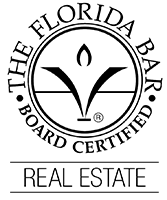Making and Depositing a Florida Will
Making a Last Will and Testament in Florida
Almost every Pinellas County adult has the right to make a will, and there are many excellent Pinellas County and Hillsborough County estate planning attorneys who draft wills for their clients. There is no standard form of will so St. Petersburg estate planning attorneys often create their own will forms to use as a starting point for drafting their clients’ wills.
If you die without making a will, or if the signed original of your will cannot be found, then your probate estate passes as an intestate estate to the persons specified in the Florida Probate Code as being your heirs. If you want to name who gets your probate assets at your death and who handles your probate estate at your death, then you need to make a will.
Florida probate law is based on the English common law as it existed on July 4, 1776, which allowed the making of wills under the English Statute of Wills that was enacted in 1540. But, prior to that, English law required that only the firstborn legitimate child could inherit real estate. So, the right to make a will is an important right that every Pinellas County resident should claim by making a will, keeping it in a safe place, and keeping it up to date.
“Any person who is of sound mind and who is either 18 or more years of age or an emancipated minor may make a will.”
Florida Statutes Section 732.501
Even those who create a revocable living trust and transfer all of their assets to the trust to avoid probate should make a will for two reasons. First, there are some assets that might not exist until death, such as a wrongful death lawsuit arising out of an auto accident. Second, the only way a person may name a personal representative for his or her probate estate is by making a will. The person who dies without a will loses the right to name the probate estate beneficiaries and personal representatives, even if the person created a living trust.
Another reason to make a will, even if there is a living trust, is that probate will probably be required in order to clear claims of creditors. The Florida Probate Code provides that the typical revocable living trust is liable for claims of the decedent’s creditors.
“Any portion of a trust with respect to which a decedent who is the grantor has at the decedent’s death a right of revocation…is liable for the expenses of the administration and obligations of the decedent’s estate to the extent the decedent’s estate is insufficient to pay them…”
Florida Statutes Section 733.707
The Florida Probate Code provides a two-year statute of limitations for claims against decedents, but that deadline can be reduced to three months by publishing and serving notice to creditors. But, only the personal representative of a probate estate is allowed to provide notice to creditors, so even when a person dies with all his or her assets in a living trust, we often open a probate proceeding in order to reduce the creditor claims period to three months.
Depositing a Last Will and Testament with the Clerk of Court in Florida
When it comes to handling the legal affairs of a loved one who has passed away, it can be a challenging and emotional process. In Florida, one of the initial steps to take is to deposit the deceased’s last will and testament with the Clerk of Court. Following the law, this should be done within 10 days after the testator’s death. Here are the steps you should follow:
- Locate the Will: The first step is to locate the signed original of the deceased’s last will and testament. It may be in their home, a safe deposit box, or with their attorney.
- Go to the Appropriate Clerk of Court’s Office: You must deposit the will at the Clerk of Court’s office in the county where the deceased lived. If you’re unsure of the Clerk’s location, you can look it up on the Florida Court Clerks & Comptrollers website.
- Submit the Will: Hand in the signed original of the will to a Deputy Clerk.
- Obtain a Certified Copy and Receipt: Ask the Deputy Clerk for a certified copy of the will and a receipt as proof of the deposit. Keep the certified copy of the will and the deposit receipt for your records.
If more than one signed original will is found, then every one of them must be deposited with the Clerk. It is up to the probate Court to determine which will is the last will and is entitled to be admitted to probate. So, all wills must be filed with the Clerk so that the Court can make that decision.
Speaking of the law, the Florida Probate Code clearly describes what anyone who has a signed original will must do after a Florida resident dies:
“The custodian of a will must deposit the will with the clerk of the court having venue of the estate of the decedent within 10 days after receiving information that the testator is dead. The custodian must supply the testator’s date of death or the last four digits of the testator’s social security number to the clerk upon deposit.”
Florida Statutes Section 732.901 Production of wills
The law also requires the Clerk of Court to “retain and preserve the original will in its original form for at least 20 years.”
Remember, during this difficult time, it can be beneficial to seek legal advice to ensure all steps are correctly followed. James W. Martin is a probate attorney in St. Petersburg, Pinellas County, Florida, whose Board Certification in Real Estate Law by The Florida Bar, assists him in drafting wills and trusts for clients and in advising personal representatives and beneficiaries after someone has died.
Other Practice Areas
This page relates to one of the practice areas of St. Petersburg, Pinellas County, Florida lawyer James W. Martin. For other practice areas, click here.
Contact
If you have the need for a St Petersburg Pinellas County Florida probate attorney, you may use the contact form below or call James W. Martin directly at 727-821-0904 or email him at jim@jamesmartinpa.com for an initial consultation.
The text on this page was written by James W. Martin, Esq. and was last updated on June 16, 2024.






